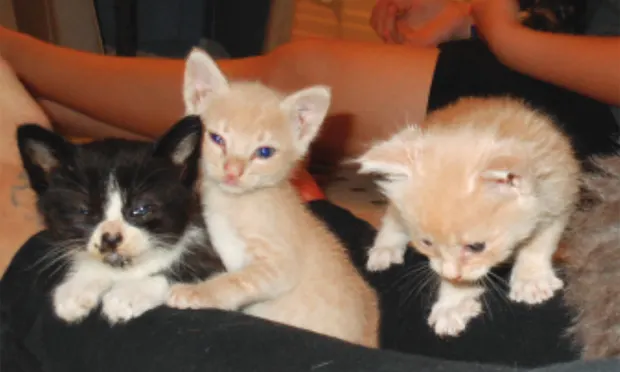Orphaned Kitten Care

Similar to owned kittens, orphaned kittens require proper health, growth, development, and socialization before weaning. Kittens ≤4 weeks of age cannot regulate body temperature and must be kept warm via safe measures (ie, to avoid injury or burns). Kittens <3 weeks of age must have anogenital stimulation for defecation and micturition. If no lactating foster queen is available, kittens must be fed via nursing bottles or orogastric tubes, the proper positioning and placement of which are critical to prevent aspiration. Kittens should be weighed q12–24h for the first 6–9 weeks of age to ensure proper weight gain (~10–15 g/day).
If colostrum is not ingested within 12–18 hours of age, kittens are at risk for failure of passive transfer, predisposing them to fatal illnesses. Failure of passive transfer may be corrected through healthy adult feline serum administered IP or SC. Overall health must be maintained with parasite control, diarrhea and dehydration treatment, and basic vaccination. Weaning begins at 3–4 weeks of age by increasing canned kitten food mixed with milk replacer; by 6–9 weeks of age kittens can fully eat a dry diet. The stress of weaning can be associated with increased morbidity and mortality.
CommentaryHigh-risk kitten morbidity and mortality periods occur at birth, the first 2 weeks of age, and during weaning, periods which are likely more critical for orphaned kittens. This review provided practical information for management of these vulnerable patients, including specific care, nutritional support, and health management recommendations (eg, keeping good health records, rapidly recognizing illness). This review is a valuable hands-on reference for the practitioner assisting in the management of orphaned kittens.—Glenn Allen Olah, DVM, PhD, DABVP (Feline)
SourcePlaying mum: Successful management of orphaned kittens. Little S. J FELINE MED SURG 15:201-210, 2013.